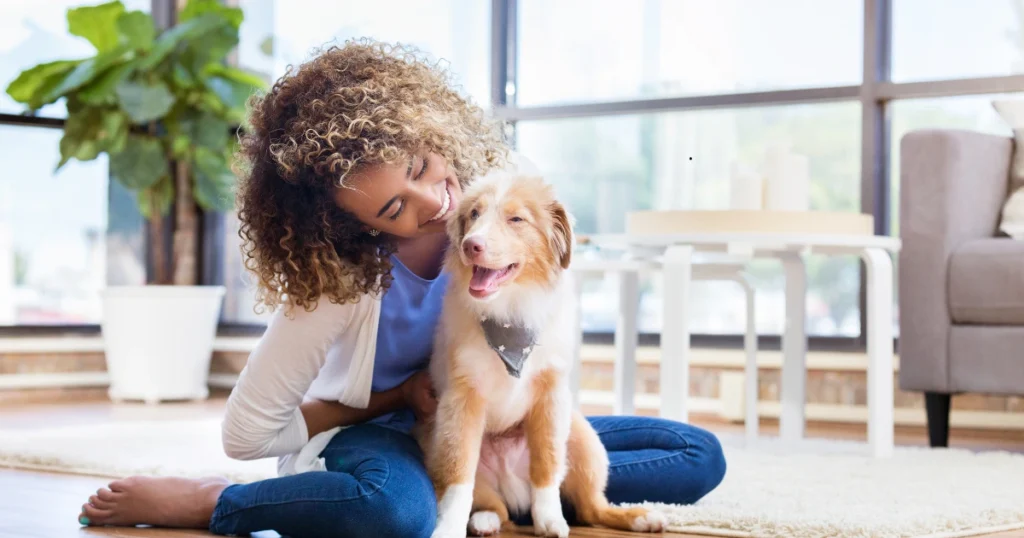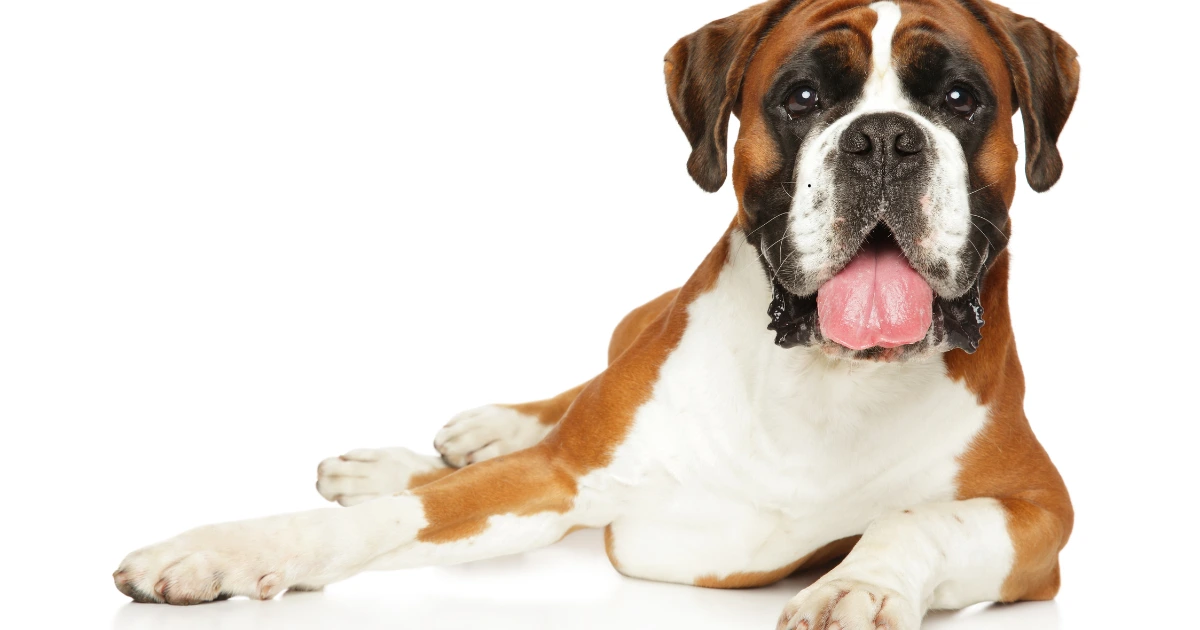If your dog has ever woken you up by panting in the middle of the night, you might wonder, “Why is my dog panting at night?” Panting helps dogs cool down, but if it happens a lot at night or your dog seems restless, it could be a sign that something is wrong.
In this guide, I’ll go over why dogs might pant at night, what signs to look out for, and when you should visit the vet. With more than ten years as a veterinarian, I’ll share tips and real-life examples to help you keep your dog safe and comfortable.
Table of contents
1. Understanding Normal vs. Abnormal Panting
Panting is how your dog cools down. Unlike people, dogs don’t sweat everywhere; they lose heat through their tongues and paw pads. After exercise, excitement, or a warm walk, panting is a standard way for them to cool off.
But if your dog pants at night, especially when it’s cool or there’s no apparent reason, it could mean something more serious. For example, I once treated an older Labrador who started panting at night for no apparent reason. He was later diagnosed with early heart disease.
Key signs of abnormal panting include:
- Panting with pacing or restlessness
- Panting accompanied by unusual tongue or gum colour (blue, purple, grey)
- Excessive thirst or frequent urination
- Changes in appetite or weight
Understanding the difference between normal and abnormal panting is the first step in maintaining your dog’s health.

2. Heatstroke: A Hidden Risk at Night
Most people associate heatstroke with daytime, but dogs can overheat at night, especially in warm, poorly ventilated homes. Short-nosed breeds, such as pugs, bulldogs, and Boston terriers, are particularly vulnerable.
Heatstroke in dogs can lead to dehydration, organ damage, and even death if left untreated. Common symptoms include:
- Heavy panting
- Drooling
- Red gums
- Weakness or lethargy
Always make sure your dog has fresh water and a cool place to sleep. A cooling mat or a fan near their bed can help on warm nights.
3. Medical Conditions That Cause Nighttime Panting
Several underlying health issues can trigger excessive nighttime panting. Some of the most common include:
Cushing’s Disease
Cushing’s Disease occurs when the body produces too much cortisol. Dogs with Cushing’s may pant excessively, drink more water, urinate frequently, lose hair, and develop a pot-bellied appearance. This condition is more common in older dogs.
Heart Disease
Dogs with heart disease may pant after minimal exertion or even when they haven’t done much or while they’re resting. Heavy panting at night can be a sign of fluid in the lungs or a lack of oxygen in the body. I’ve seen Dachshunds start panting at night before showing any other signs of illness. Airway obstruction can make it difficult for dogs to breathe. Panting may be accompanied by wheezing or a change in tongue colour. Immediate veterinary attention is critical in these cases.
4. Anxiety, Stress, and Environmental Factors
Not all causes of nighttime panting are medical in nature. Dogs can experience stress or anxiety, which may become noticeable at night. Common triggers include:
- Loud noises like thunderstorms or fireworks
- Separation anxiety
- Unfamiliar environments or travel
Environmental issues can also contribute. Puppies and senior dogs may struggle with higher nighttime temperatures, and dogs with untreated allergies can experience disrupted sleep.
For example, I once treated a young terrier who panted at night during thunderstorms. Using calming sprays and providing him with a quiet, comfortable place to sleep made a significant difference.
5. Pain or Discomfort
Nighttime panting can also signal physical discomfort. Conditions such as arthritis, injury, or digestive upset may cause dogs to pant while pacing or moving restlessly.
Tips to help:
- Check for signs of limping or stiffness.
- Adjust their sleeping area with orthopaedic bedding.
- Monitor for changes in behaviour or appetite.
6. Cognitive Disorders in Senior Dogs
Older dogs may develop Canine Cognitive Disorder, also known as dog dementia. This can disrupt sleep-wake cycles and cause restlessness, leading to nighttime panting. Signs include:
- Confusion or disorientation
- Changes in sleep patterns
- Pacing or vocalisation at night
Maintaining a regular bedtime routine and providing your dog with activities during the day can help alleviate these symptoms.
7. When to See a Veterinarian

While occasional panting is normal, persistent or excessive nighttime panting warrants a vet visit. Call your veterinarian immediately if you notice:
- Blue, purple, or grey tongue or gums
- Rapid or laboured breathing
- Signs of heatstroke
- Changes in appetite, weight, or behaviour
Your vet can run tests, suggest treatments, and give you advice on how to care for your dog at home so they stay comfortable and healthy.
Conclusion
Dogs pant at night for many reasons, from cooling off to health problems. By watching your dog, knowing what to look for, and seeing the vet when needed, you can help keep your dog safe and healthy.
If you ever wonder why your dog is panting at night, don’t wait to get help. Acting early can make a significant difference in your dog’s health and overall well-being.
FAQs
Panting at night can be normal if your dog was active or excited during the day. However, persistent or excessive panting in a calm environment may indicate a problem.
Yes, stress and anxiety are common causes of nighttime panting. Thunderstorms, fireworks, and separation anxiety are typical triggers.
Provide a cool, quiet sleeping space, ensure they are hydrated, and address any medical or behavioural issues with the guidance of a veterinarian.





